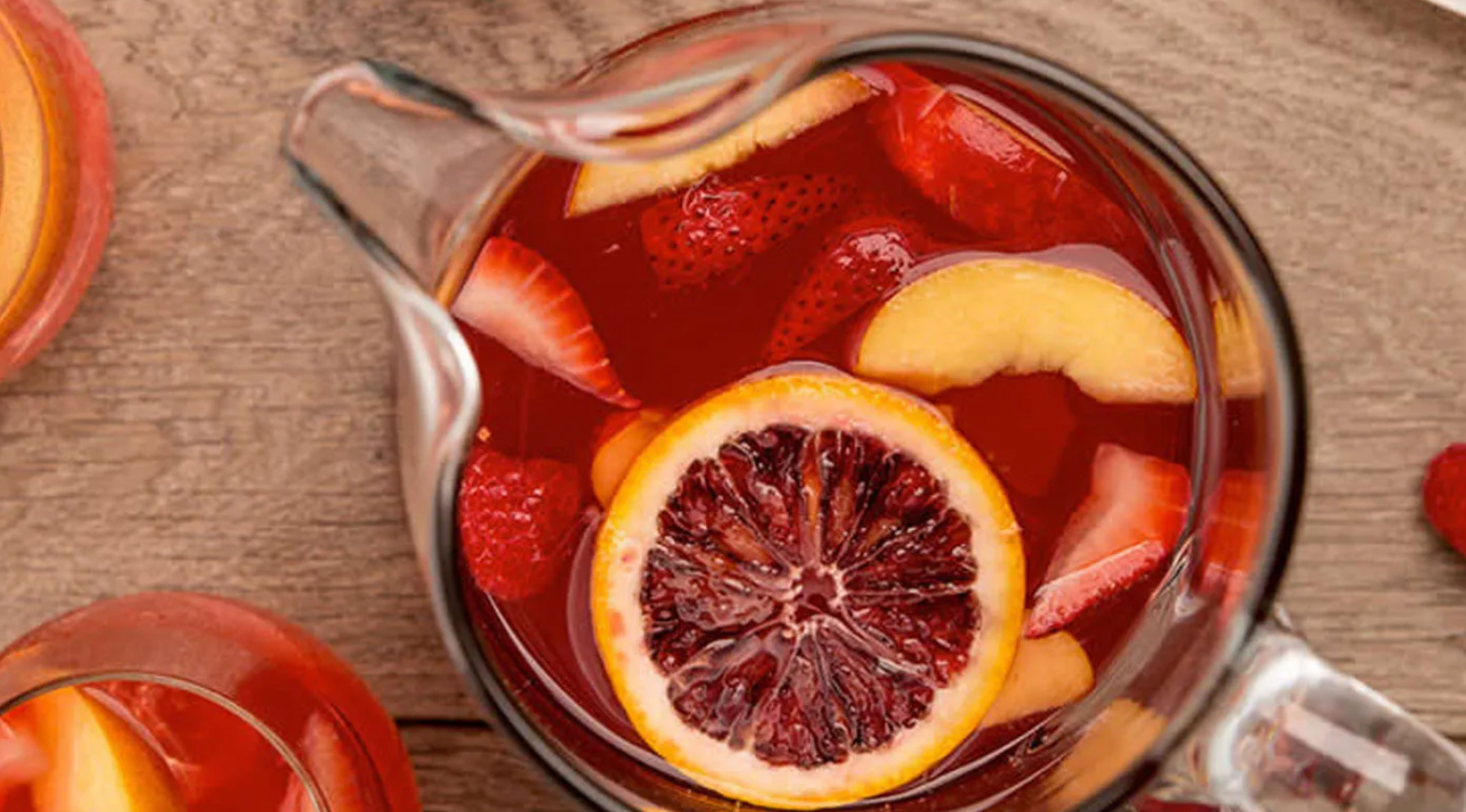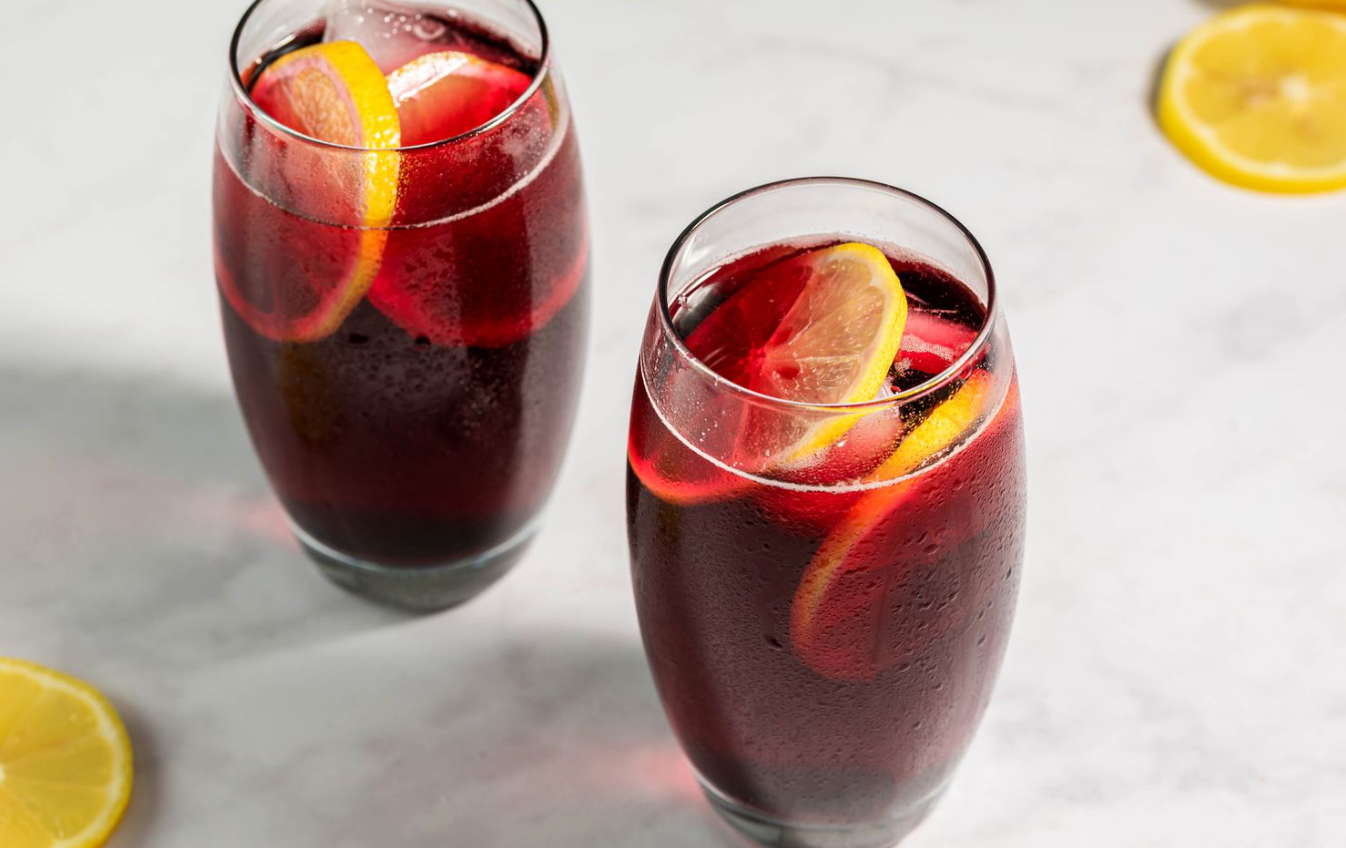Spanish-speaking countries have a diverse array of drinks, each with its own unique taste and cultural importance. We’ll look at some popular beverages, typical drinks from various regions, and phrases and sayings about drinking in Spanish. Knowing these will really help you get more out of the drinking culture in Spanish-speaking places, especially during any celebration.
Popular drinks in Spanish-speaking countries

Each Spanish-speaking country has its own unique drinks that show off its culture and food traditions. In Mexico, people enjoy refreshing Aguas Frescas and the flavorful Café de Olla. These drinks are a big part of everyday life and special celebrations.
| Country | Drink | Description |
|---|---|---|
| Spain | Saangri | A refreshing punch made from red wine, fruit juices, soda water, and fruit. |
| Tinto de Verano | Red wine mixed with lemon soda, a simple version of sangria. | |
| Horchata | A sweet milky beverage made from tiger nuts, popular in Valencia. | |
| Cava | Spanish sparkling wine from the Catalonia region. | |
| Sherry | A fortified wine from the Jerez region, varying from dry to sweet. | |
| Mexico | Tequila | Distilled spirit made from blue agave, synonymous with Mexican culture. |
| Mezcal | Similar to tequila but made from different agaves, known for its smoky flavor. | |
| Horchata | A rice-based drink flavored with cinnamon and vanilla. | |
| Paloma | A cocktail made with grapefruit soda and tequila. | |
| Michelada | Beer cocktail with lime juice, sauces, spices, and peppers. | |
| Argentina | Mate | A traditional caffeine-rich infused drink, consumed from a shared gourd. |
| Malbec | Famous Argentine red wine, known for its deep flavor. | |
| Fernet con Coca | A mix of Fernet, a bitter herbal liqueur, and Coca-Cola. | |
| Torrontés | An aromatic white wine unique to Argentina. | |
| Chile | Pisco | Grape brandy which is the base of many cocktails. |
| Carménère | Medium-bodied red wine, considered Chile’s signature grape. | |
| Mote con Huesillo | Traditional Chilean drink of wheat and peaches cooked in sugar and cinnamon. | |
| Colombia | Aguardiente | An anise-flavored liquor, very potent. |
| Chicha | Traditional fermented or non-alcoholic maize drink. | |
| Café de Colombia | World-renowned coffee, typically served black or as ‘tinto’. | |
| Peru | Pisco Sour | Cocktail made from Pisco, lime juice, syrup, egg white, and bitters. |
| Chicha Morada | Non-alcoholic sweet beverage made from purple corn. | |
| Inca Kola | Popular soft drink known for its bright yellow color and sweet taste. |
National drinks of Spanish-speaking countries
Why do national drinks matter so much in Spanish-speaking countries? These drinks capture an area’s unique tastes, history, and resources. They’re like a snapshot of the region’s heritage in a glass. Take Mexico’s tequila, for example. It’s made from the local blue agave and is loved worldwide. But it’s more than just a drink; it’s a source of national pride.
Then there’s Argentina’s yerba mate. It’s not just a beverage; it’s part of the daily social fabric. People gather and share it, strengthening community bonds. Every drink, from Chile’s pisco to Spain’s sangria, has its own story. These stories are woven from the local climate, history, and traditions. They play a big role in celebrating and keeping alive the rich cultural diversity of these places.
Phrases and idioms about drinking in Spanish
In Spanish drinks, some fun phrases show how important drinking is in the culture. Take ‘Estar como una Cuba’ — it means ‘being like a barrel,’ and it’s a funny way to say someone is very drunk.
| Phrase/Idiom | Meaning |
|---|---|
| Beber como una esponja | To drink a lot (literally, “to drink like a sponge”). |
| Estar como una cuba | To be very drunk (literally, “to be like a barrel”). |
| Echarse un trago | To have a drink. |
| Ir de copas | To go out for drinks. |
| Tomar una copa | To have a drink. |
| Beber a sorbos | To sip a drink. |
| Dar una vuelta a la manzana | To take a break or go for a walk, often to clear one’s head after drinking. |
| A buenas horas, mangas verdes | Expression used when someone arrives too late (originating from a drinking context). |
| Empinar el codo | To drink alcohol, often excessively (literally, “to lift the elbow”). |
| Ser un borracho | To be a drunkard. |
| Tomarse una copa de más | To have one drink too many. |
| Ahogar las penas | To drown one’s sorrows (often through drinking). |
| Ponerse pedo | To get very drunk. |
| Chupar como un cosaco | To drink heavily (literally, “to suck like a Cossack”). |
| Ir de botellón | To engage in a street drinking party, common among young people in Spain. |
| Tener resaca | To have a hangover. |
| Hacerse una cerveza | To have a beer. |
| Pegar un pelotazo | To take a big swig of an alcoholic drink. |
| Ser un alcohólico | To be an alcoholic. |
| Tener una copa de más | To have one drink too many. |
89+ Delicious Spanish Drinks Names

Exploring Spanish drinks is great for any party. Spain offers a wide range of drinks, including both alcoholic and non-alcoholic options.
| No. | Drink Name | Type |
| 1 | Sangria | Alcoholic |
| 2 | Horchata | Non-alcoholic |
| 3 | Tinto de Verano | Alcoholic |
| 4 | Clara | Alcoholic |
| 5 | Rebujito | Alcoholic |
| 6 | Calimocho | Alcoholic |
| 7 | Cava | Alcoholic |
| 8 | Sherry | Alcoholic |
| 9 | Agua de Valencia | Alcoholic |
| 10 | Sidra | Alcoholic |
| 11 | Café con Leche | Non-alcoholic |
| 12 | Carajillo | Alcoholic |
| 13 | Licor 43 | Alcoholic |
| 14 | Orujo | Alcoholic |
| 15 | Crema Catalana Liquor | Alcoholic |
| 16 | Queimada | Alcoholic |
| 17 | Anis del Mono | Alcoholic |
| 18 | Mosto | Non-alcoholic |
| 19 | Pacharán | Alcoholic |
| 20 | Vino de Naranja | Alcoholic |
| 21 | Vermouth | Alcoholic |
| 22 | Mahou (beer) | Alcoholic |
| 23 | Estrella Galicia (beer) | Alcoholic |
| 24 | Cruzcampo (beer) | Alcoholic |
| 25 | San Miguel (beer) | Alcoholic |
| 26 | Horchata de Chufa | Non-alcoholic |
| 27 | Granizado de Limón | Non-alcoholic |
| 28 | Granizado de Café | Non-alcoholic |
| 29 | Gazpacho | Non-alcoholic |
| 30 | Salmorejo | Non-alcoholic |
| 31 | Leche Merengada | Non-alcoholic |
| 32 | Batido de Fresa | Non-alcoholic |
| 33 | Batido de Plátano | Non-alcoholic |
| 34 | Zumo de Naranja | Non-alcoholic |
| 35 | Zumo de Manzana | Non-alcoholic |
| 36 | Zumo de Piña | Non-alcoholic |
| 37 | Zumo de Tomate | Non-alcoholic |
| 38 | Agua Fresca | Non-alcoholic |
| 39 | Café Solo | Non-alcoholic |
| 40 | Café Cortado | Non-alcoholic |
| 41 | Té con Limón | Non-alcoholic |
| 42 | Té con Menta | Non-alcoholic |
| 43 | Chocolate Caliente | Non-alcoholic |
| 44 | Cola Cao | Non-alcoholic |
| 45 | Aquarius | Non-alcoholic |
| 46 | Kas (soft drink) | Non-alcoholic |
| 47 | Fanta de Limón | Non-alcoholic |
| 48 | Fanta de Naranja | Non-alcoholic |
| 49 | Fanta de Pomelo | Non-alcoholic |
| 50 | Red Bull | Non-alcoholic |
| 51 | Monster Energy | Non-alcoholic |
| 52 | Tónica | Non-alcoholic |
| 53 | Sprite | Non-alcoholic |
| 54 | Nestea | Non-alcoholic |
| 55 | Lipton Ice Tea | Non-alcoholic |
| 56 | San Francisco Cocktail (mocktail) | Non-alcoholic |
| 57 | Limonada | Non-alcoholic |
| 58 | Batido de Mango | Non-alcoholic |
| 59 | Batido de Melocotón | Non-alcoholic |
| 60 | Menta Poleo | Non-alcoholic |
| 61 | Manzanilla Tea | Non-alcoholic |
| 62 | Sangría Blanca | Alcoholic |
| 63 | Rioja (red wine) | Alcoholic |
| 64 | Tempranillo (red wine) | Alcoholic |
| 65 | Garnacha (red wine) | Alcoholic |
| 66 | Albariño (white wine) | Alcoholic |
| 67 | Verdejo (white wine) | Alcoholic |
| 68 | Txakoli (white wine) | Alcoholic |
| 69 | Bobal (red wine) | Alcoholic |
| 70 | Palo Cortado (sherry) | Alcoholic |
| 71 | Amontillado (sherry) | Alcoholic |
| 72 | Fino (sherry) | Alcoholic |
| 73 | Manzanilla (sherry) | Alcoholic |
| 74 | Ribera del Duero (red wine) | Alcoholic |
| 75 | Priorat (red wine) | Alcoholic |
| 76 | Montilla-Moriles (white wine) | Alcoholic |
| 77 | Rueda (white wine) | Alcoholic |
| 78 | Jerez (sherry) | Alcoholic |
| 79 | Málaga (dessert wine) | Alcoholic |
| 80 | Valdepeñas (red wine) | Alcoholic |
| 81 | Somontano (red wine) | Alcoholic |
| 82 | Toro (red wine) | Alcoholic |
| 83 | Cariñena (red wine) | Alcoholic |
| 84 | Bierzo (red wine) | Alcoholic |
| 85 | Rías Baixas (white wine) | Alcoholic |
| 86 | Condado de Huelva (white wine) | Alcoholic |
| 87 | Pla de Bages (red wine) | Alcoholic |
| 88 | Alella (white wine) | Alcoholic |
| 89 | Terra Alta (white wine) | Alcoholic |
| 90 | Monastrell (red wine) | Alcoholic |
| 91 | Garnatxa (red wine) | Alcoholic |
| 92 | Mencía (red wine) | Alcoholic |
| 93 | Godello (white wine) | Alcoholic |
| 94 | Pedro Ximénez (sherry) | Alcoholic |
Conclusion
Looking at over 89 Spanish drinks opens our eyes to how diverse and rich Spanish cultures are. Each drink, from Aguas Frescas to Orujo, isn’t just tasty—it tells a story. It’s about tradition, history, and the people who made them first. Exploring these drinks helps us understand and appreciate different cultures. It’s a fun and tasty way to learn, especially when hanging out and celebrating.

